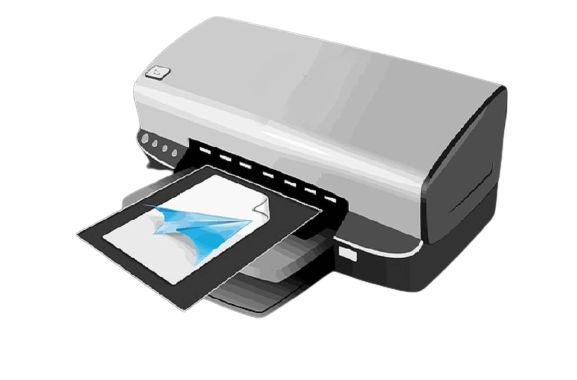How to Ensure the Security of Your Dedicated Server

The success of your website is based to a huge degree on the web hosting service you choose. There are several web hosting providers and plans for you to choose from. One of the top options is dedicated server hosting, as it provides you with a great degree of control over all aspects of your server and its resources. The entire server is assigned just for your website’s needs. You do not have to share it with any other user, so it provides your data with the added layer of safety as no one has access to it. So there is optimum security. In this article, we’ll take a look at how to boost your dedicated server’s security.
1. Regular Updates Installation
While this seems like the most obvious measure to take, it is often ignored, which leads to the server being left unprotected and primed for viruses and malware to attack it. Your website is extremely vulnerable if its software is not updated regularly. The entire safety of your dedicated server is based on updating your software and with it ensuring that your security patches are installed as well. Do not procrastinate installing updates to a later time. It could have dire consequences. It is similar to leaving your door unlocked for a thief to just walk in and wreak havoc with your house. Your server is the home you’re your website and all of your data. So leaving it vulnerable could endanger your entire enterprise. A managed server is a good option if all of these tasks seem overwhelming. Your web hosting provider will take care of all of your updates then.
2. Strict Password Policies Should be Enforced
It is crucial to implement new passwords when you get a dedicated server. The default passwords that are put in the beginning can put your server at risk of being attacked or falling prey to viruses. Here are some of the password protection measures you need to put into use. Your password should include upper and lowercase alphabets along with a random sequence of symbols and numbers. Do not use anything that ties to you personally, such as the name of your dog. This can be guessed with relative ease. Keep changing your password after a certain duration. Dedicated servers are especially vulnerable to malware as any application can be added easily. Your entire database containing sensitive information can be easily duplicated by malware.
3. Create a Regular Data Backup
A complete server backup is a great idea put into action by the users of several dedicated servers. This also includes your O.S. and many other aspects of the server. The point of backing up your entire system is that in case the original database or any other aspect is compromised, you always have a remote backup solution to restore your website to its proper functioning. You should back up your database as often as possible and store them offsite. You can opt for either cloud storage or choose a different place to store it.
4. Only Choose Reliable Networks for Logging in
Your dedicated hosting account should only be accessed using highly secure networks, which will help maintain your server security. Putting in your password along with your username in a network that is not secure like a Wi-Fi network can be disastrous. Using a public Wi-Fi network to access your website can let unknown people see the confidential data that you’re putting in like your website’s password. Your confidential information could end up in the hands of some dangerous people. Hence, a reliable and verified network is of utmost importance. You need to also get your users and employees to enforce these rules.
5. Enforce DDoS Protection
A DDoS attack dismantles the whole website or server in an instant. It takes down your website by directing a huge amount of traffic on its way and crashing your servers. The point of such an attack is to hit the business financially. DDoS manages to isolate your website from the users so that they can’t access it. The only way you can keep yourself safe is a dedicated server that keeps you safe from such DDoS attacks is one of the best solutions. There is a DDoS shield integrated into your dedicated servers that keeps an eye on the traffic you receive. When any of the traffic is deemed malicious, they are not allowed to reach your server. Only traffic that is legitimate is deemed fit to pass, which results in a smooth user experience.
6. Figure Out Who Gets Access
All aspects of the dedicated servers such as security settings, various applications, server configuration settings, and many more can be accessed through the root user. This makes the work of the system administrators and the professionals who have to handle the server easier. However, root access must be restricted to only a few people. Giving access to people who don’t need it could result in accidents like deleting a system file or modifying it which could cause irreparable damage to the server and your website. Fortunately, root access helps you make user profiles that can then be given differing levels of access as you want. Hence, you should use this feature to your benefit and block any damage to your business.
Conclusion
A dedicated server has a treasure trove of features that you can benefit from including flexibility, higher safety, performance, and many more. It helps provide a better user experience, which in turn adds to the satisfaction of the customer. A dedicated server includes an SSD, data backups, DDoS protection, and many more. Cheap dedicated server hosting provides bandwidth that is beneficial for websites. By implementing, the measures that we have mentioned above you can also make your website safer.
Read more blogs: https://www.searchmypost.com/category/technology/

 A Detailed Look at the Features of the LEGO Technic Mars Crew Exploration Rover
A Detailed Look at the Features of the LEGO Technic Mars Crew Exploration Rover  How to Get Email Addresses from LinkedIn with Aeroleads
How to Get Email Addresses from LinkedIn with Aeroleads  How to Find a Phone Number Using an Address with Aeroleads
How to Find a Phone Number Using an Address with Aeroleads  How to Connect HP DeskJet 2700 to Wi-Fi: A Comprehensive Guide
How to Connect HP DeskJet 2700 to Wi-Fi: A Comprehensive Guide  The Rise of Ludo and Teen Patti Game Development Companies
The Rise of Ludo and Teen Patti Game Development Companies  Building Your Community with Event Matchmaking Platform
Building Your Community with Event Matchmaking Platform  Exploring London’s Best Butcher Shops
Exploring London’s Best Butcher Shops  Enhance Your Shop Appeal with Sydney’s Best Carpentry Services
Enhance Your Shop Appeal with Sydney’s Best Carpentry Services